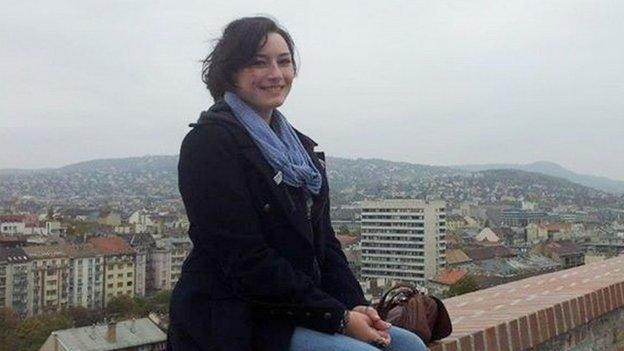Music festivals: What can be done to stop drug deaths?
- Published
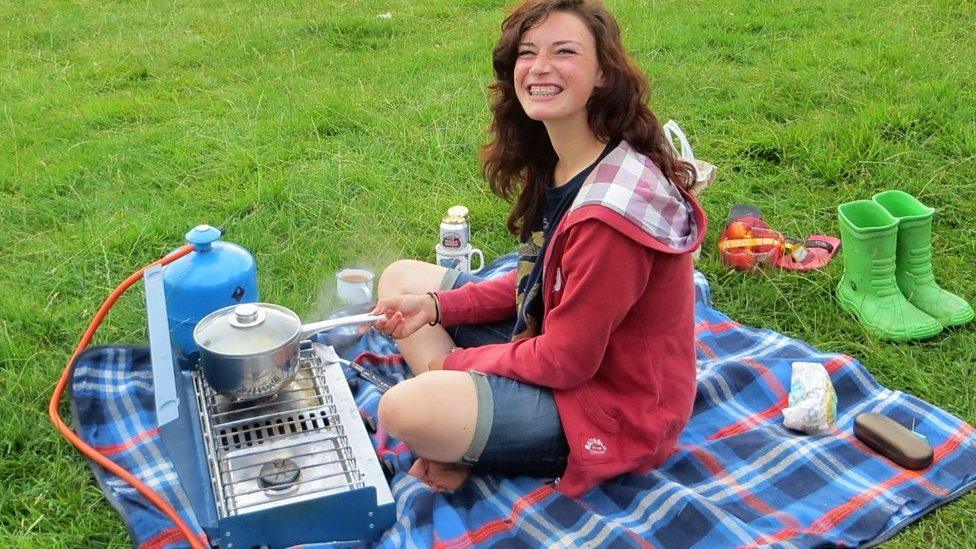
Ellie Rowe died at Boomtown Fair in 2013 after taking ketamine
At least one person has died from a suspected drugs overdose at a music festival this summer. The 17-year-old's death at the event in Leeds has reignited the debate about what can be done to stop others meeting the same fate.
Wendy Teasdill still feels the pain afresh whenever a youngster dies at a festival.
It has been six years since her daughter Ellie Rowe died after taking ketamine at the Boomtown Fair and she knows the 18-year-old's death - and the heartache for her friends and family - could have been prevented.
"You see these people growing up, being lively and alive, and then it is just cut short," she said. "It's absolutely tragic.
"These young people, they have finished their exams, this could be their first stab at freedom.
"It's their nature to be selfish and hedonistic. And drugs can be so much stronger than they realise, they need to know what they are taking."
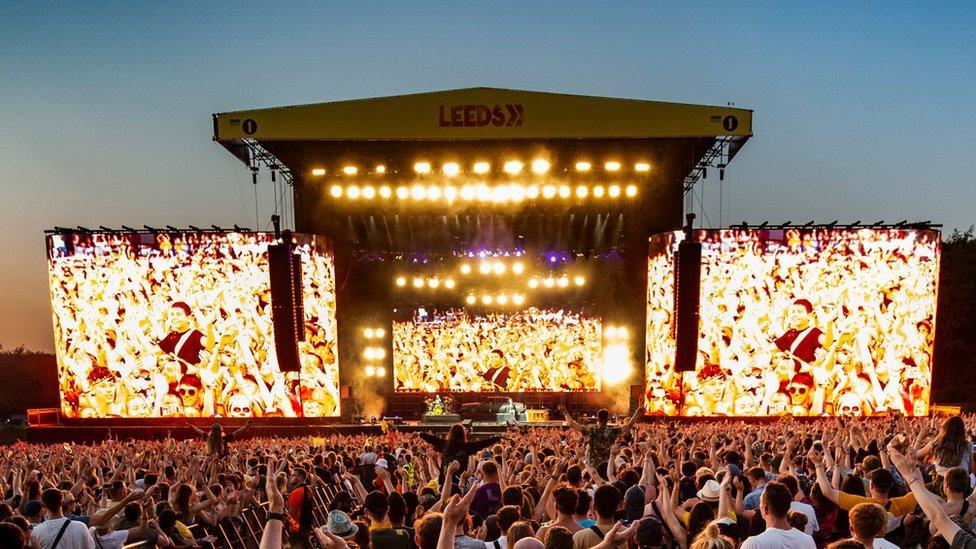
More than 100,000 people attended Leeds Festival
The death of a 17-year-old girl at Leeds Festival on 24 August has sparked online debate, resulting in two pretty clear trains of thought.
The first says people simply should not take recreational drugs - the most common at festivals being MDMA, external, ketamine, external and cocaine, external.
Substances are usually banned from being brought on-site, but organisers concede they still get in.
People argue that users choose to ignore the risks and take them anyway - knowing that, fundamentally, the only way not to die from drugs is not to take them in the first place.
Allow X content?
This article contains content provided by X. We ask for your permission before anything is loaded, as they may be using cookies and other technologies. You may want to read X’s cookie policy, external and privacy policy, external before accepting. To view this content choose ‘accept and continue’.

The second says people will always take drugs and they therefore should be helped to do so as safely as possible.
This argument is supported by Ms Teasdill and a number of drug-death prevention groups.
Expecting people to universally decline drugs, especially youngsters, is unrealistic, according to Niamh Eastwood of drugs charity Release.
Allow X content?
This article contains content provided by X. We ask for your permission before anything is loaded, as they may be using cookies and other technologies. You may want to read X’s cookie policy, external and privacy policy, external before accepting. To view this content choose ‘accept and continue’.

She instead wants substance testing at every festival, so people can find out exactly what is in them before using them.
Finding, for example, that a tablet contains a triple dosage - as police did at Leeds Festival, external - means a user can perhaps decide to take only part of a pill, or maybe discard it altogether, Ms Eastwood said.
"There is always a risk when you take drugs but the reality is young people will still do it," she said.
"The important thing is we try everything we can to help them make better decisions and, ultimately, get them home safely."
Wendy Teasdill has previously spoken to the BBC about her daughter
Ms Teasdill is also calling for testing offered by The Loop, external, which has been operating at some festivals since 2014, to be government-funded and rolled out at every event.
She has seen young people queuing up to have their drugs tested at Boomtown Fair in Hampshire, where her daughter died in 2013 and which subsequently introduced testing by The Loop.
In 2017, the organisation said it tested drugs for 1,100 people at the event, with 44% saying they would discard or reduce their dose as a result.
"These kids want to know what they are taking," Ms Teasdill said.
"Festivals are built on young people's desire for hedonism but they are not taking their responsibility to those young people seriously."
She said water should be more readily available to counteract the effects of drugs, especially when the weather is hot.
Advice should also be given on taking drugs in a safer way - for example, doing so in a place where people can get help, and not in an isolated tent like Ellie and her friend, who came round to find Ellie lifeless.
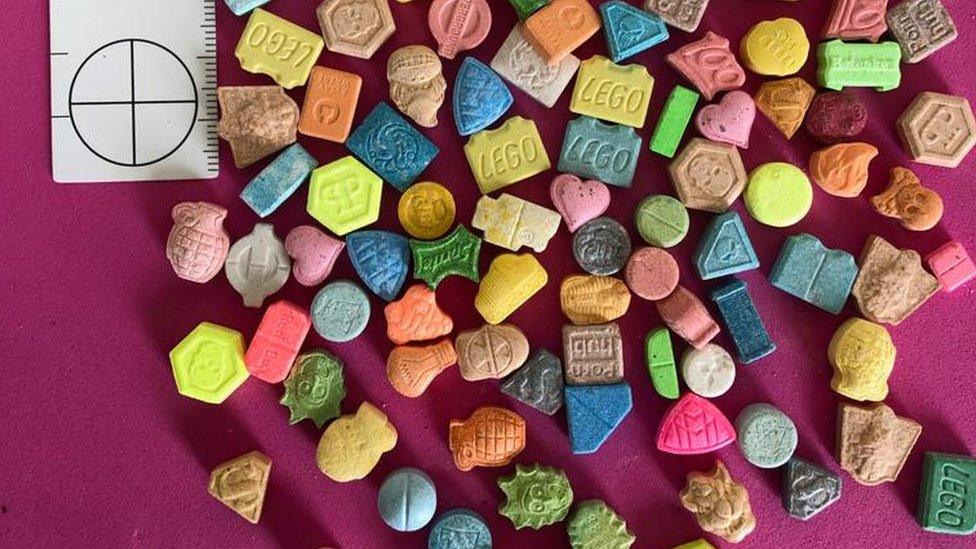
The way some of the drugs are made to look like sweets makes Ms Teasdill's "blood run cold"
The argument against testing and offering advice is that it could be seen as condoning drug use.
"It's not condoning it," said Ms Teasdill.
"Knowledge is power and if you deprive them of knowledge then you take away their power and send them into a downward spiral of ignorance which is what happened to my smart, intelligent daughter."
Ms Eastwood agreed.
"I think it's just [about] living in the real world. The stark reality is every year people will use MDMA. Drugs will never go away.
"What we need to do is - in a responsible way - make sure we have these interventions that protect young people's lives."
Ms Teasdill said her daughter's death had deterred Ellie's friends from doing drugs and she will continue to speak out about what happened.
She doesn't want people to take drugs but said "lecturing does not work". The strength of the dosages causes her particular concern and Ms Teasdill said seeing many that are "made to look like sweets" makes her "blood run cold".
"Telling Ellie's story does make a difference which is why I carry on talking. I'm just a drop in the ocean though."
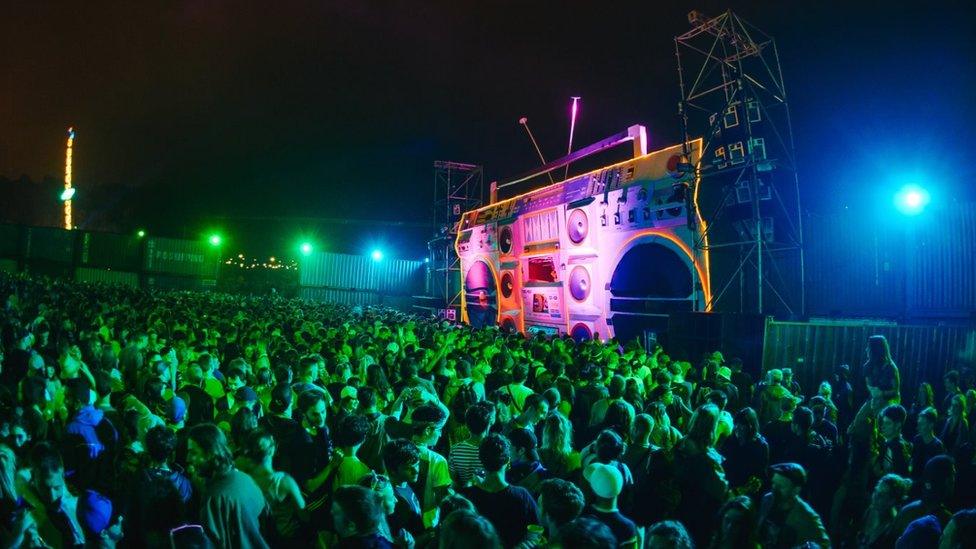
The Boomtown Fair is held at the Matterley Estate in Hampshire
Anna Wade, communications manager at Boomtown Fair, said a zero-tolerance approach to drugs at the event has been ineffective and "pushed people underground where they have no access to information".
"Our policy towards drugs is that they are illegal - don't bring them into the festival," she said.
"But we acknowledge through experience that drugs will still get in, so we just wanted to have a much more encompassing approach.
"We try our best to keep them out and do what we can we to keep people safe."
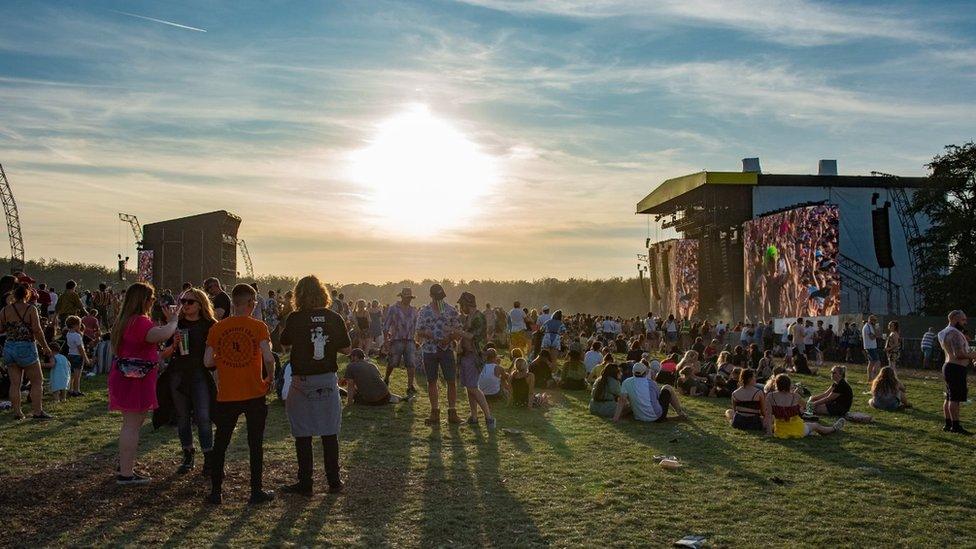
The UK is home to hundreds of music festivals
The government's position remains unchanged.
"There is no safe way to take illegal drugs, which devastate lives, ruin families and damage communities," a spokeswoman said.
"Our approach remains clear: we must prevent illicit drug use in our communities and help those dependent on drugs to recover."
She also said health education, which includes drug information, is compulsory in independent schools and will be so in all state-funded secondary schools from September 2020.
The Loop and organisers of the Leeds and Reading Festivals were contacted for comment.
For information and support about drugs, visit the BBC advice page.
- Published15 August 2019
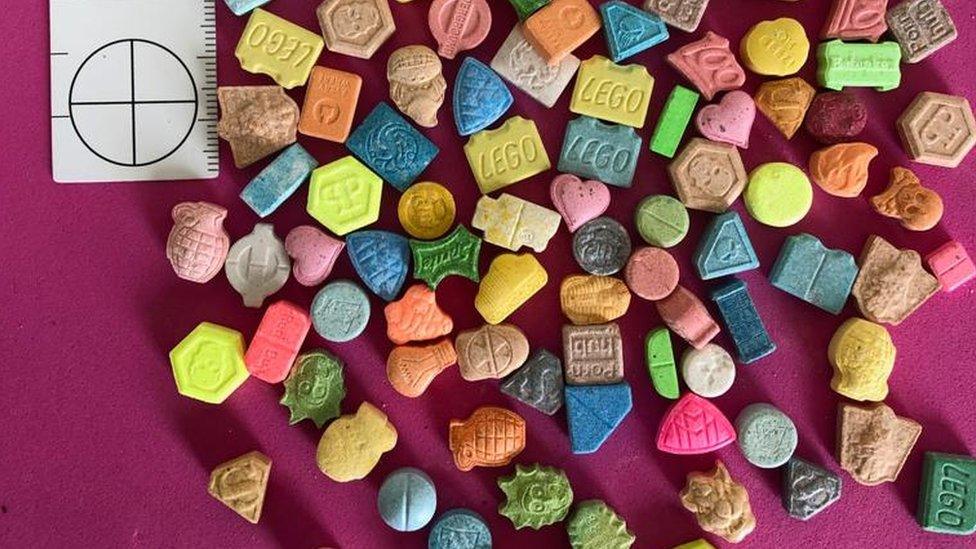
- Published4 October 2018
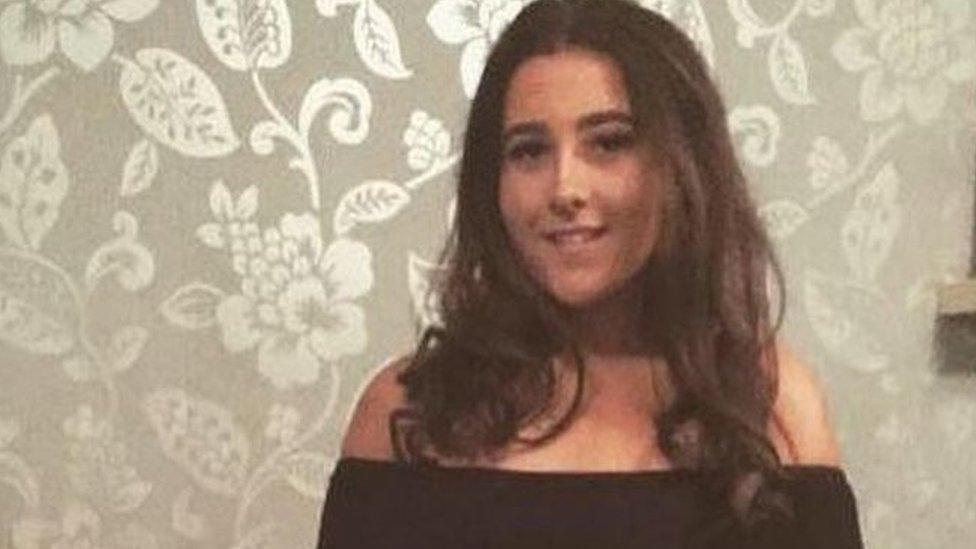
- Published5 July 2018

- Published6 July 2018
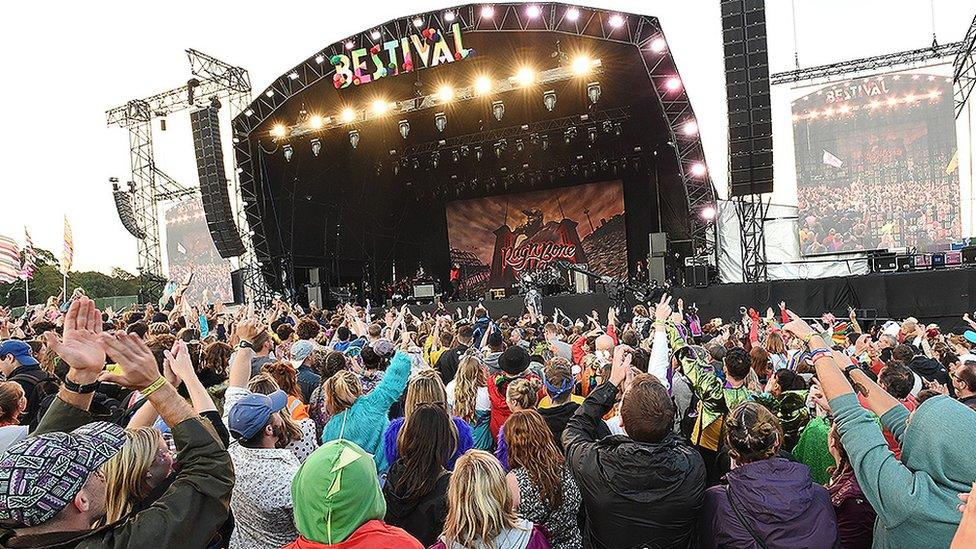
- Published12 February 2014
